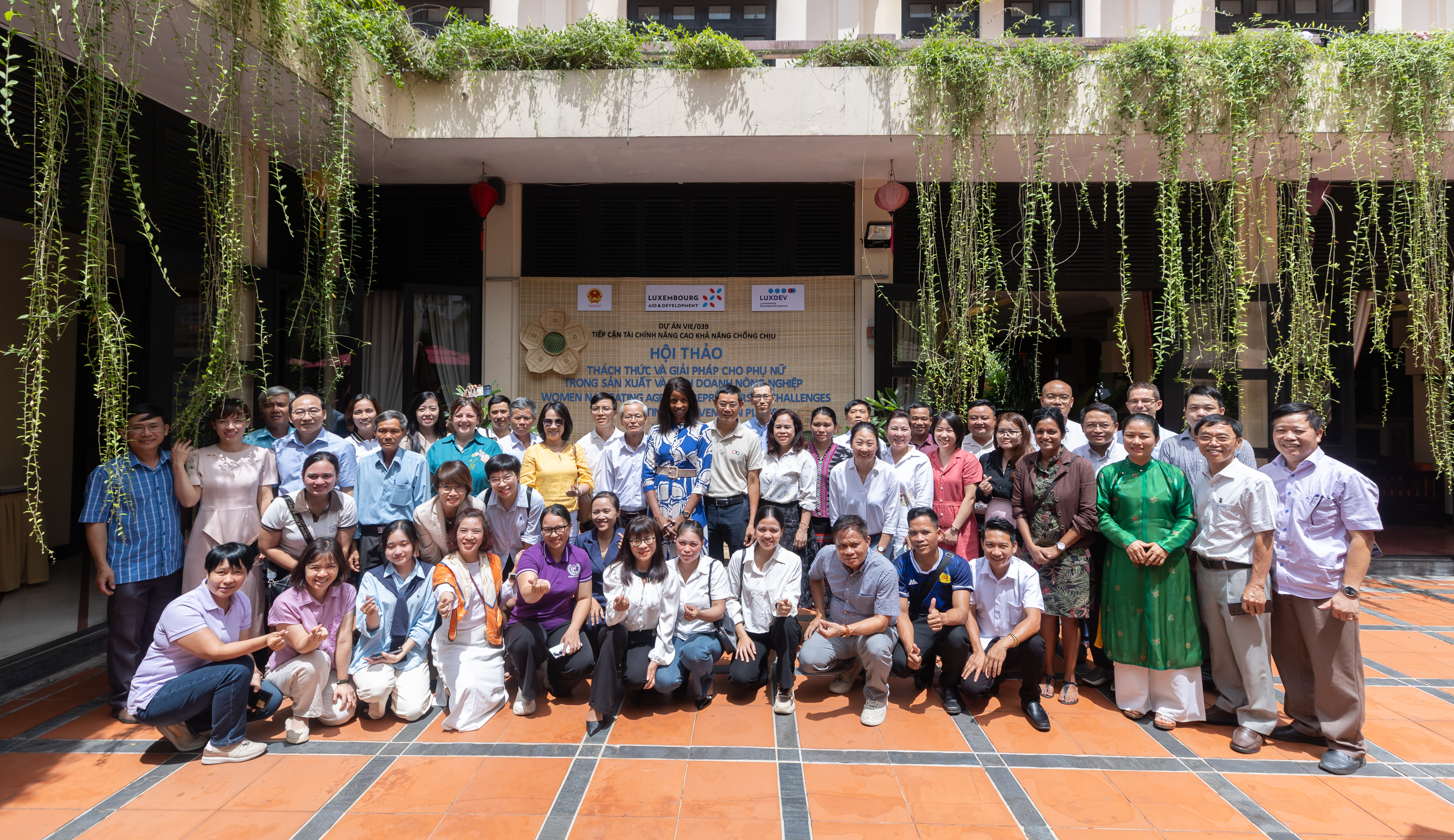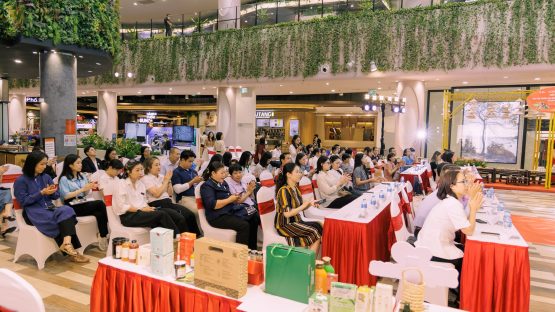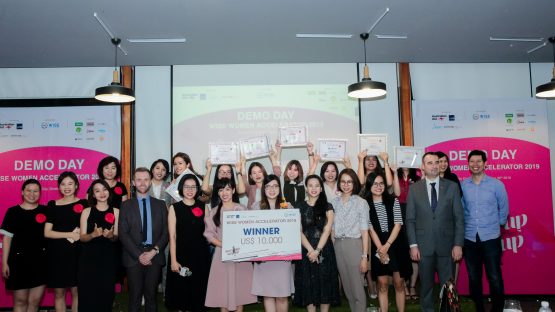Hue, July 8, 2025 – As climate change continues to disrupt agriculture and markets remain unpredictable, one question stands out: how can women, so often the backbone of farming communities, overcome the odds and step into leadership? That question was at the heart of “EmpowerHER: Women Navigating Agri-Entrepreneurship Challenges”: a dynamic workshop held in Hue City that brought together policymakers, international experts, and 17 cooperatives and women-led businesses from across the region.
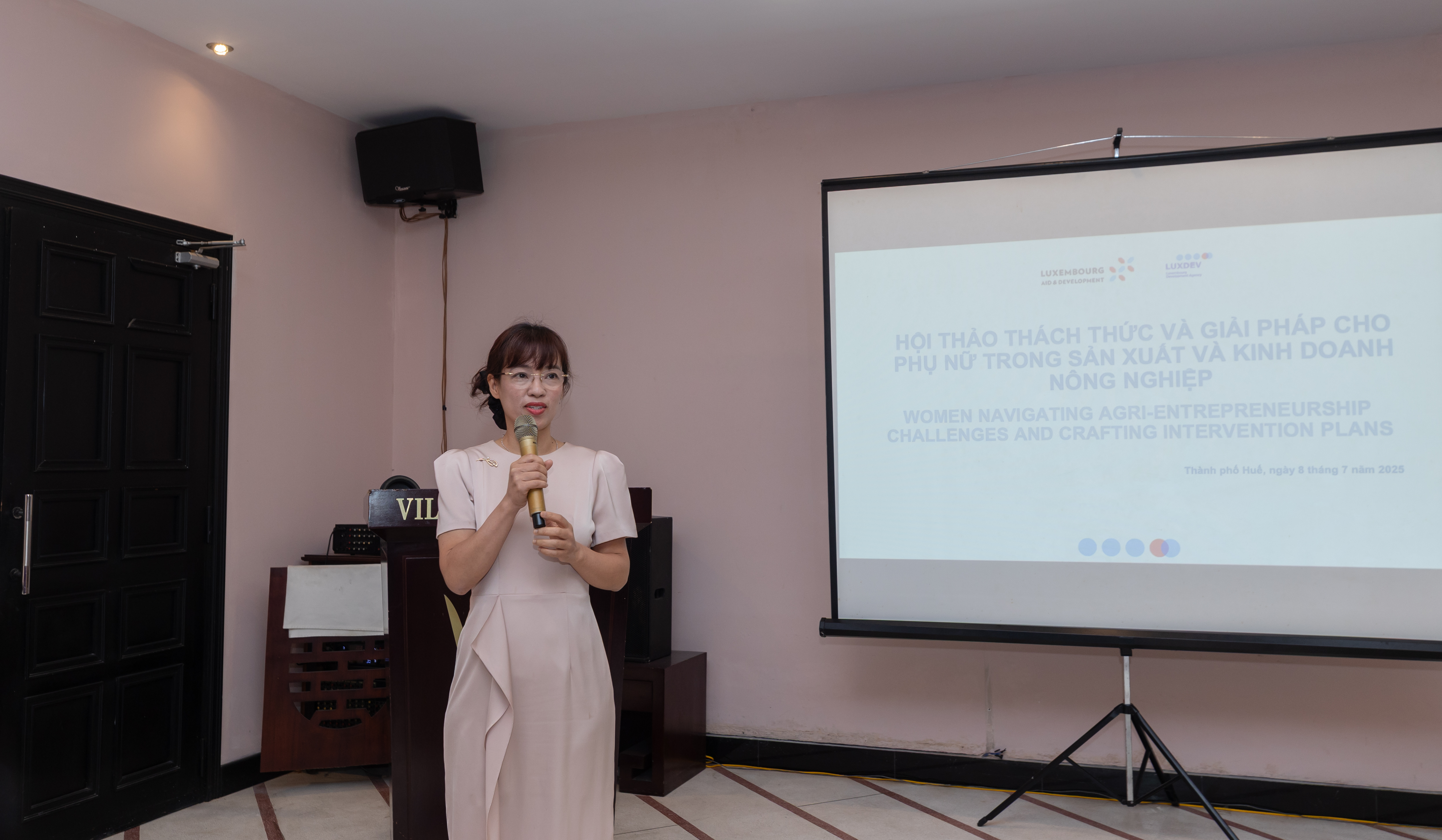
The event was co-hosted by Mrs. Tu Thu Hien, CEO of the Women’s Initiative for Startups and Entrepreneurship (WISE), and Mrs. Bui Thi Mai Hien, Chief Technical Advisor of Project VIE/039. Experts from LuxDev, global organizations, and key local institutions such as the Vietnam Fatherland Front, Vietnam Association for Intellectual Women, Thua Thien Hue Women’s Union, and the Hue Organic Agriculture Association also took part.
Speaking the Challenges Out Loud
From the very beginning, the atmosphere in the room was vibrant and engaged. Using insights from recent market analysis reports as a foundation, breakout groups engaged in in-depth discussions about the challenges women face in the context of a changing climate. These issues were grouped into four major themes. First, there were production-related challenges, such as the lack of access to technical training and climate-adaptive farming techniques.
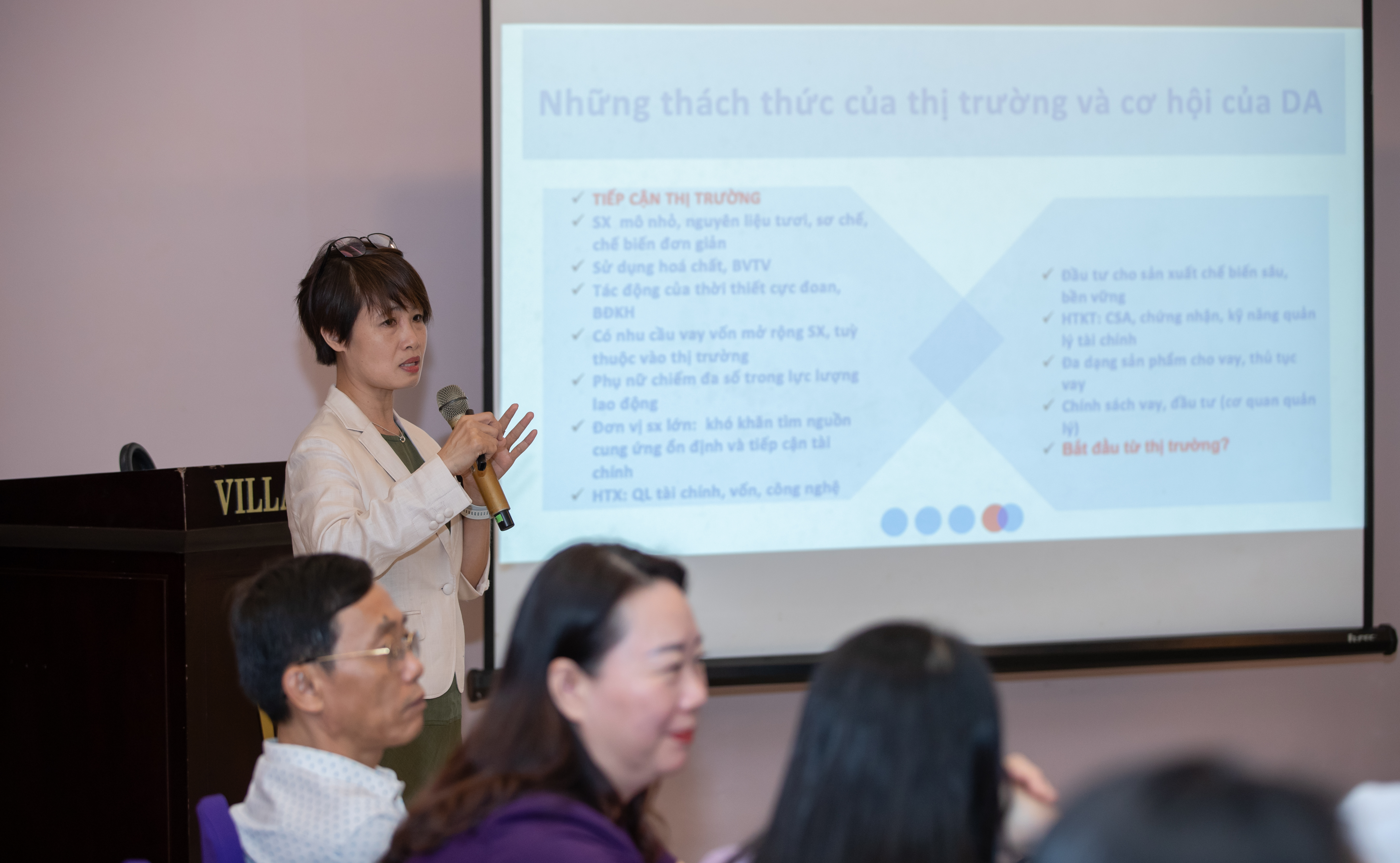
Second, participants raised concerns around market access, including limited information, price volatility, and the difficulty of securing stable buyers. Third, access to financial services was flagged as a major issue, with few loan products tailored to women-led agricultural businesses. Finally, the conversation expanded to cover broader systemic concerns, such as persistent gender inequality, low levels of digital inclusion, limited support for people with disabilities, weak networking opportunities, and gaps in financial literacy. All of these factors are interconnected and play a crucial role in determining whether women can achieve sustainable, long-term success in agribusiness.
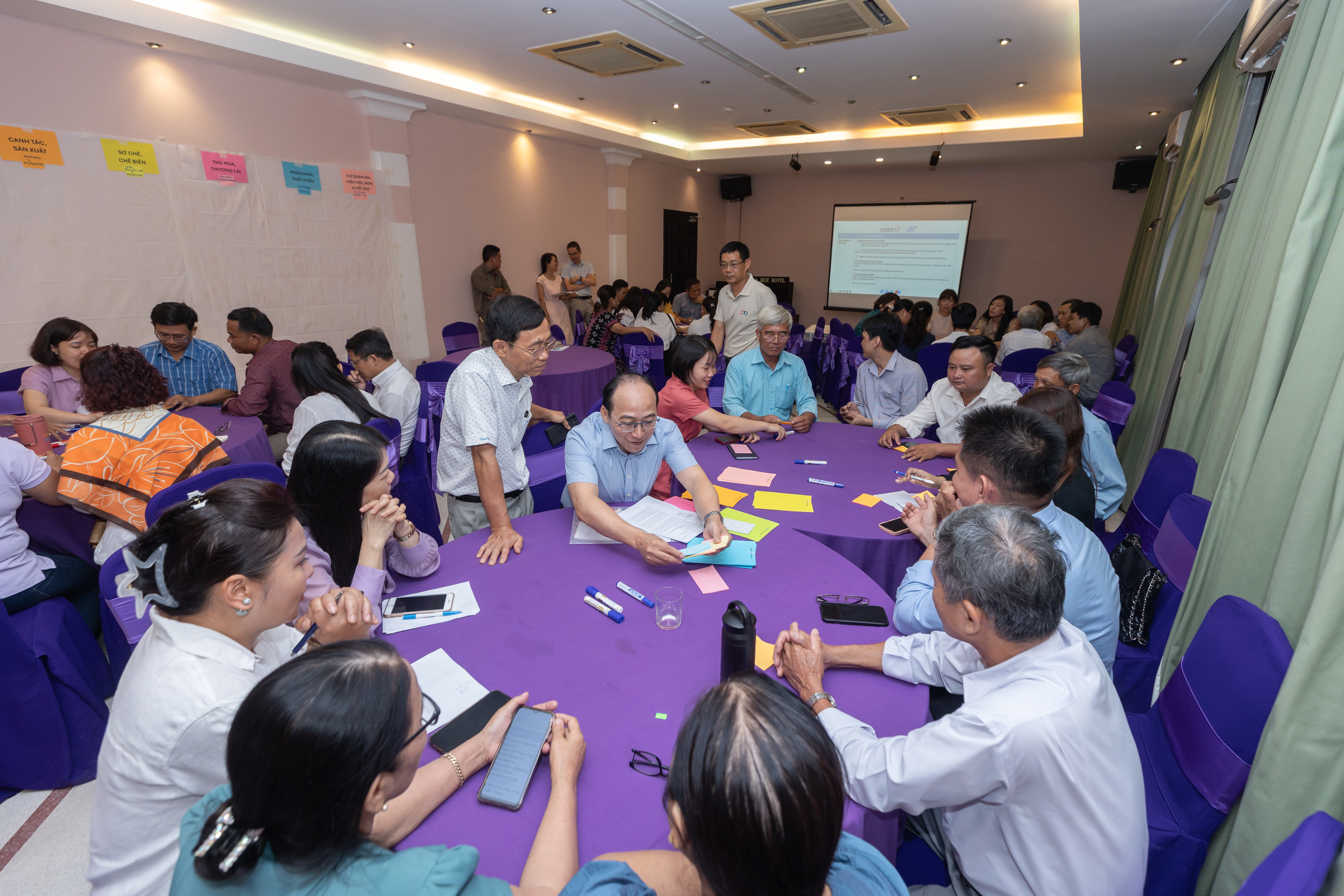
The Broader Context: Overcoming the Double Burden and Invisible Barriers
The challenges shared at the Hue workshop are not isolated incidents, but rather echoes of systemic issues that women in agriculture face across Vietnam. A prevalent issue raised during the workshop is that land use right certificates, a critical form of collateral, are often registered under the husband’s name. Furthermore, financial decisions within the household are typically made by male members, limiting women’s autonomy in applying for and managing loans. This, coupled with restricted access to technical training programs, creates a significant barrier.
However, perhaps the most profound obstacle stems from societal biases, evident in the “double burden” where rural women shoulder nearly all unpaid care work. This leaves them “time-poor,” with little energy to participate in business networking or capacity-building activities. Consequently, they often find themselves in a passive role in commercial transactions and lack negotiation skills. Moreover, the absence of women in leadership positions within cooperatives and industry associations is a stark reality. The workshop report indicated that women’s management capabilities are still limited, particularly in cooperative leadership roles. Some even shared the perception that male cooperative leaders have a stronger “voice” and find it easier to work with women (as employees or partners). These entrenched cultural and gender biases within local communities continue to restrict women’s opportunities for participation and leadership, creating a vicious cycle that stifles their immense potential.
Turning Challenges into Opportunities: The Power of Co-Creation
Throughout the next discussions, members proposed a range of concrete and practical support measures. Ideas focused on capacity building through specialized training in business administration (finance, sales) and digital marketing (product storytelling, e-commerce), complemented by a one-on-one mentorship program on accessing bank loans. To improve market linkage, attendees called for more direct business-to-business matchmaking events and greater support for participating in trade fairs. A particularly forward-thinking proposal was to organize a dedicated workshop on women’s empowerment that actively involves male participants.
Furthermore, there was a strong, shared desire for the establishment of a truly effective network, enabling members to exchange knowledge on farming techniques and the application of new production technologies. Together, these thoughtful contributions formed the basis of a concrete action plan, laying the foundation for a sustainable and collaborative network.
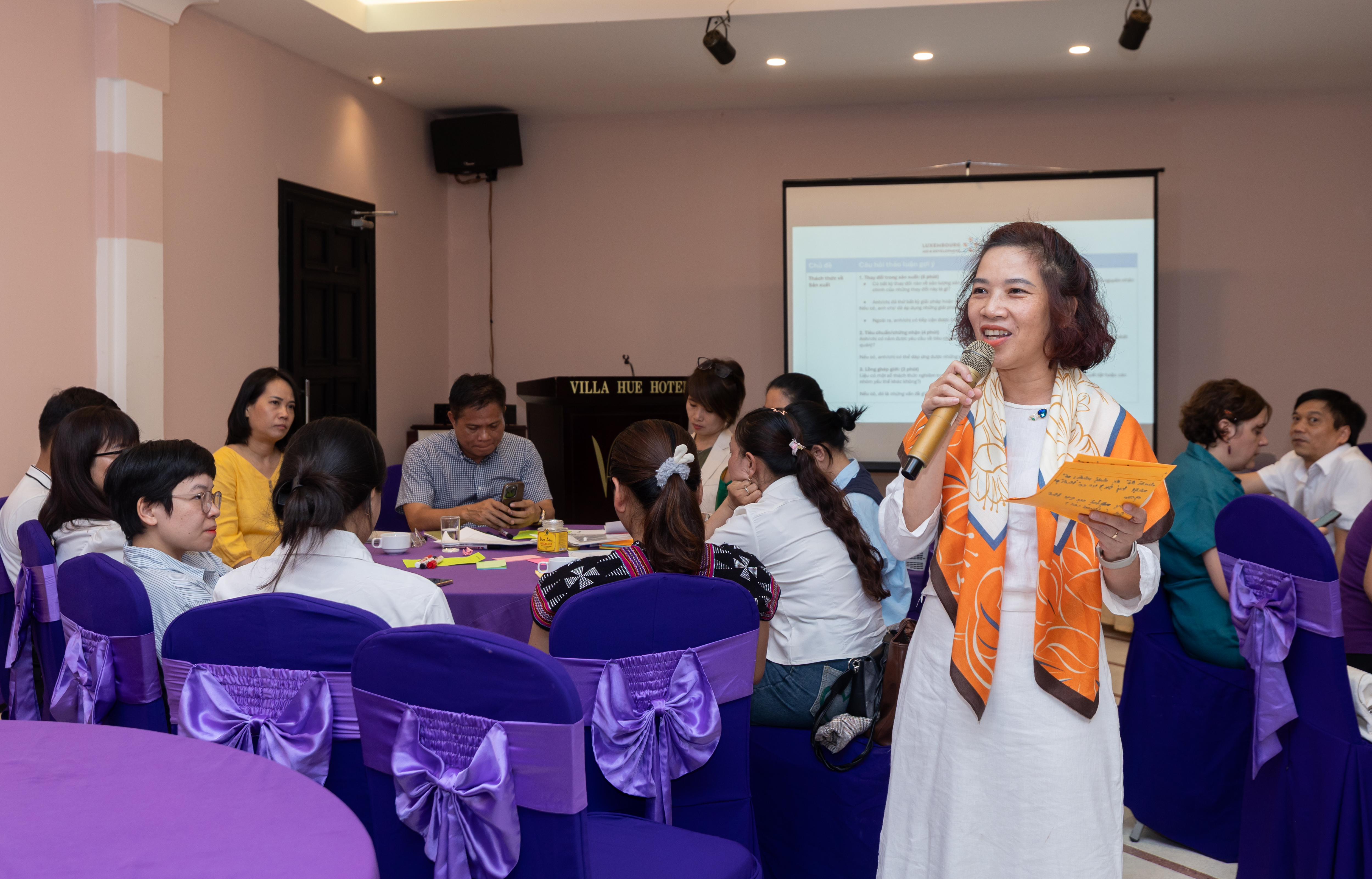
Action, Commitment, and What Comes Next
As the workshop came to a close, its most meaningful outcome was not a policy report or formal agreement. Instead, it was the renewed sense of motivation, mutual understanding, and collective commitment that participants carried with them. One powerful insight that resonated throughout the room is that: empowering women is not just about inviting them into the conversation. It is about giving them the tools, support, and recognition they need to lead with confidence and autonomy.
For that reason, EmpowerHER was much more than a single-day event. It marked the beginning of something lasting: a network of solidarity and shared purpose. It brought together women aggregators and entrepreneurs who are determined to transform not only their businesses, but also the systems around them. In support of that vision, WISE, represented by Mrs. Tu Thu Hien, reaffirmed its long-term commitment to standing beside these women as they continue their journey toward entrepreneurship and leadership.
Looking ahead, the path is clear. These women are no longer walking alone. Together, they are shaping a local agricultural economy that is not only more sustainable and innovative but also more inclusive and equitable for everyone involved.
